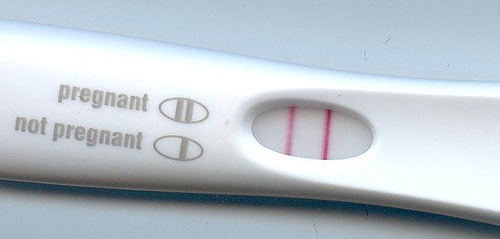Should sex education be an election priority?
Britain still has the highest rate of teenage pregnancy in Western Europe, despite a 25 per cent fall in the last decade. Indraja Gugle and Sonal Gupta speak to one young adult who had an unplanned pregnancy as a teenager and asked sexual healthcare provider, Marie Stopes International, why sex and relationship education is so important.
Balancing their studies and extra-curricular activities, teenagers have to learn how to navigate the path between adolescence and adulthood. Amidst the competition with their peers and embarrassing parents, a baby bump is probably the last thing you’d want to add to the list.
In 2007, 42,000 young girls aged 15-17 conceived. By 2012, the number went down to 27,900, according to the latest figures by ONS. The organisation credits government investment in sex and relationship education, improved access to contraceptives and increased publicity, for the fall in teenage pregnancy.
Need for appropriate information
For the rate of teen pregnancy to continue to fall, sex and relationship education needs to be more thorough.
Emily (name changed for privacy) could not agree more. She was 19-years-old when she found out she was pregnant. She conceived because her knowledge about a contraceptive pill she used proved to be wrong. “If I had known that before, I would not have had sex without a condom,” she says.
Here, Emily reveals her experience with unplanned pregnancy and how she overcame it:
Emily considered abortion immediately. But, many in her situation continue with the pregnancy.
Jason Warriner, a chief nurse at Marie Stopes International, the family planning and reproductive healthcare provider, states that a lot depends on the support of family, friends and carers for a teenager to continue with her pregnancy. Marie Stopes International provides sexual health services like contraception, screening for sexually transmitted diseases and terminations.
Counselling for pregnant teenagers
Easy access to information and services is paramount in teen pregnancy says Warriner:
“The key thing to consider is if health services are accessible to young people in that area… [and that they] don’t feel embarrassed to access it.”
Emily was grateful that the staff at the clinic she approached were “very informative and helpful.”
Services should not only cover the physiological but also the psychological factors of pregnancy. What teenagers need most is support to make an informed decision and see it through.
Emily describes the pregnancy and the subsequent abortion as “the single-most worst experience” of her life.
Warriner’s organisation provides counselling to women and aims to “promote the choice of women ensuring that they are making the right decision about having a termination.”
They also make sure that women are not at risk of abuse or exploitation. Being careful not to pass judgement, they strive to create a comfortable environment for women to share their thoughts.
“We’re here to support them and help them get through with this,” says Warriner.
Sex education is not a one-off session.
As well as insufficient knowledge about contraception, Warriner also cites peer pressure as a possible factor that leads many teenagers to have sex before they are ready.
Warriner says sex and relationship education is not a one-off session but a prolonged service that should be given in stages when it is appropriate. He added it is essential to address questions at various stages during a young person’s journey to adulthood.
“It is about not giving it all at once but over a number of years,” he said. “Like making sure that when they go to university or they have left home for the first time they may need more information and advice there.”
Overcoming challenges
However, Marie Stopes faces challenges from those who are against their services.
“It’s a woman’s right to access an abortion service. We get protests from people who object to our services but it is recognised that we provide safe abortion and safe reproductive healthcare,” says Warriner.
Future governments must continue with the sex and relationship education that has brought about a positive change. Warriner adds:
“One of the things that future governments need to consider is sex and relationship education for all young people in all education settings so that they can get correct information to make the right choices, access health services and know how to get help as well if they need it.”
First appeared on www.westminsterworld.com
